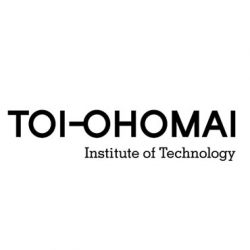
Filling the knowledge gap for the NDBA Level 5
Status
Completed: 23 May 2012
Project Details
A project, completed in 2012, to identify the knowledge gaps which occur between the work administrative professionals undertake in their place of work and the requirements of the National Diploma in Business Administration Level 5 (NDBA L5). A collaboration of Waiariki Institute of Technology and Enderby Associates Limited.
Aims:
The main aims of the project were to:
- identify and show how the knowledge gaps may best be filled
- show that all providers (ITPS, PTEs, and independent workplace assessors) can work together to fill the gap enabling administrators to achieve their national diploma
- discuss the value of day to day work practices in providing evidence towards achieving unit standards for the NDBA L5.
Methodology:
The project used a qualitative and case study methodology involving:
- an on-line survey of the two research groups – ‘former learners’, from Waiariki and Enderby Associates Limited, and Association of Administrative Professionals New Zealand Inc (AAPNZ) members
- structured interviews with some participants in the ‘former learners’ group leading to case studies (6)
- using qualitative research methods, the researchers then focused on the themes that came out of the data, which were then discussed, refined and finalised during the analysis process.
Team

Vivienne Kermode
Project Leader
Waiariki Institute of Technology (now Toi Ohomai Institute of Technology)
Eth Lloyd
Enderby Associates LimitedStatus
Funding
$8,590.00 (excl GST)
Key Findings
The key findings from the project were:
- This study shows that independent workplace assessors and ITPs can work together to fill the knowledge gaps for administrative professionals who undertake the NDBA L5 in their workplace. Linking theoretical learning with workplace assessment opportunities for a NDBA L5 ensures that already held skills and newly acquired knowledge go hand in hand with the work carried out every day by administrative professionals in their workplace environment.
- For those undertaking the NDBA L5 using an independent workplace assessor and filling identified knowledge gaps through blending formal tertiary new learning with independent workplace assessment, was shown to be a successful approach.
- Once a gap has been identified in a candidate’s knowledge and practice and the requirements of the NZQA unit standard(s) the candidate can be referred to an IPT/PTE with advice about which courses/modules to complete to meet the requirements. This means the candidate is receiving targeted training which aims to fill an identified knowledge gap. It also demonstrated the value of a close working relationship between an ITP/PTE and an independent workplace assessor.
- If the administrative professional wishes to gain a NDBA L5 in the workplace there is advantage to them if the ITP/PTEs modules/courses have embedded unit standards within them. The value of this to candidates/students is that it allows for cross crediting into a workplace assessed national qualification and it also allows portability between ITPs/PTEs if ever required.
- Flexibility and co-operation between independent workplace assessors and ITP/PTEs can ensure that the knowledge gaps for administrative professionals are filled supporting them to attain their NDBA L5. Using this model has allowed for efficient and effective learning and the application of enhanced or new skills.
- The value of the administrative professional’s day to day work was demonstrated through the study except for the one younger participant who felt a disconnect between some of her work and what was required in the unit standards. However, it is suggested that this disconnect reflected her lack of experience and was met by a variety of measure, her own research and formal new learning.
- An additional theme came through in the study which demonstrated that there are barriers to many administrative professionals obtaining professional development. The barriers outlined in this project were primarily from either the internal beliefs of an individual or the attitudes and expectations of their workplace. However, achievement of a qualification had a very positive effect on the individual, which was enhanced if the workplace also recognised the achievement.
Key Recommendations
There is a potentially untapped market of administrative professionals who are in employment, but do not require full-time or whole-course study with an ITP, and yet would benefit from access to some formal new learning in specific ‘knowledge gap’ areas. The following recommendations may assist the ITP/PTE to provide support and opportunity to that pool of potential students:
Flexibility in the enrolment process | Flexibility in the enrolment process for an ITP/PTE to easily allow single-course one-off enrolments would greatly assist the administrative professional with an identified knowledge gap when they are in the workplace.
Flexibility in transfer arrangements | Flexibility in transfer arrangements between semesters, outside of normal withdrawal periods would be very helpful. This flexibility would acknowledge that those undertaking qualifications while in the workforce may not be able to complete due to environmental changes outside their control and could assist completion.
Support or pastoral care | Support or pastoral care for administrative professionals undertaking a qualification while employed in the workplace is as important as it is for younger candidates/students, especially when they are part-time or one-off students. The responsibilities of full-time work, life and family responsibilities can be very heavy for this largely mature female part of the workforce. Recognition of these complex environments within which administrative professionals work and live, ensuring that their enquiries and concerns are handled promptly and sympathetically, can make a significant difference to completion.
Recognition of the value of a qualification | That the recognition of the value of a qualification and skills and knowledge held was important to administrative professionals. A lack of recognition of skills and knowledge and of qualifications achieved contribute to some of the barriers in the workplace perceived by those in this profession and is observed as being a lack of value of self and the role. The value of self and of the role was demonstrated as being greatly enhanced through the achievement of a NDBA L5.
Embedded unit standards | Embedded unit standards in relevant courses/modules especially in the NZQA Field Business, sub-fields Business Operations and Development, Environment, and Management would also be of value. In a NDBA L5 qualification there is a requirement for 30 credits from these sub-fields. These courses would provide options for the administrative professional to complete their NDBA L5 where a knowledge gap has been identified.
A research report prepared by Vivienne Kermode and Eth Lloyd.
(PDF, 554 KB, 49-pages).
- 2 May 2012